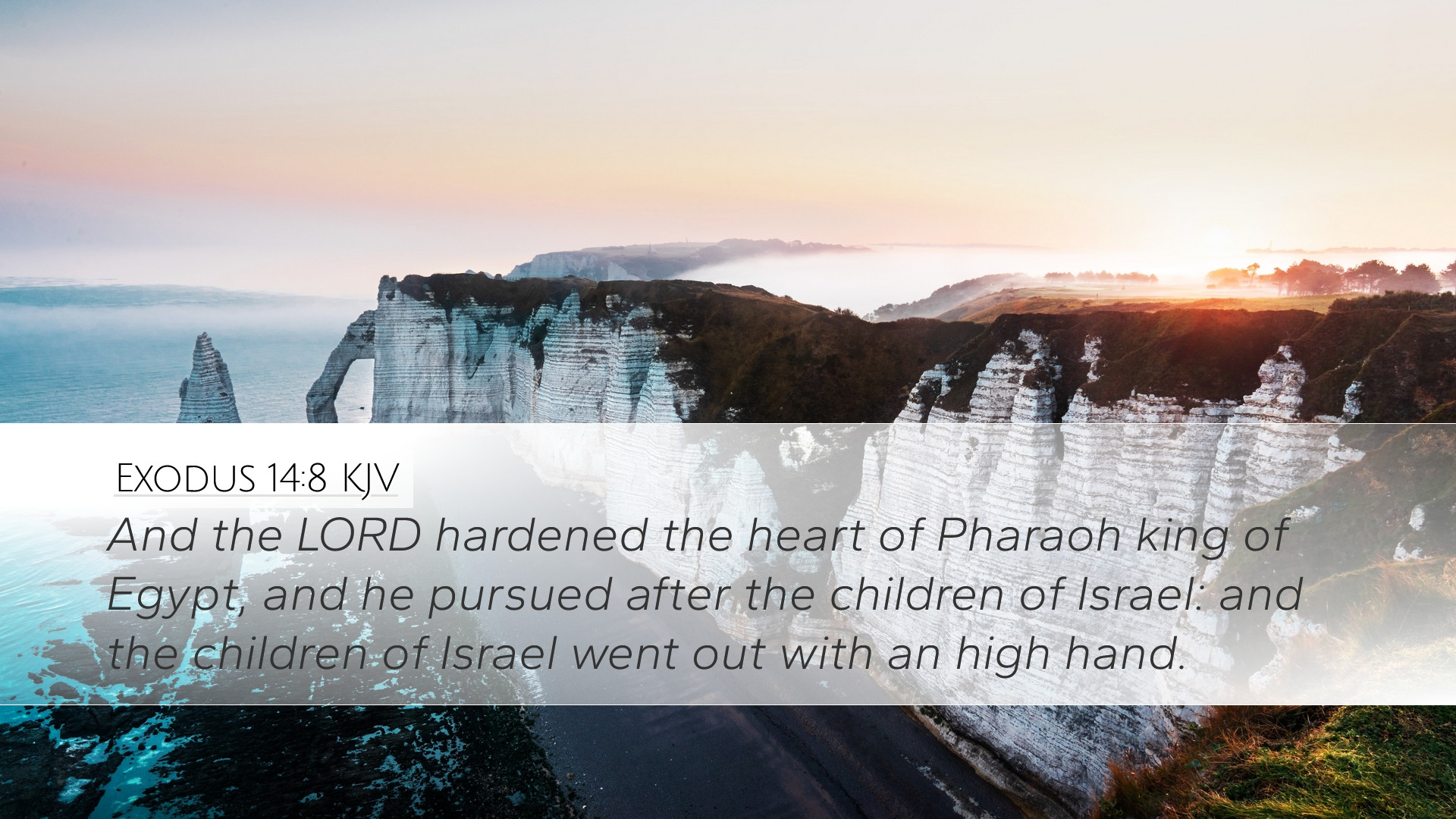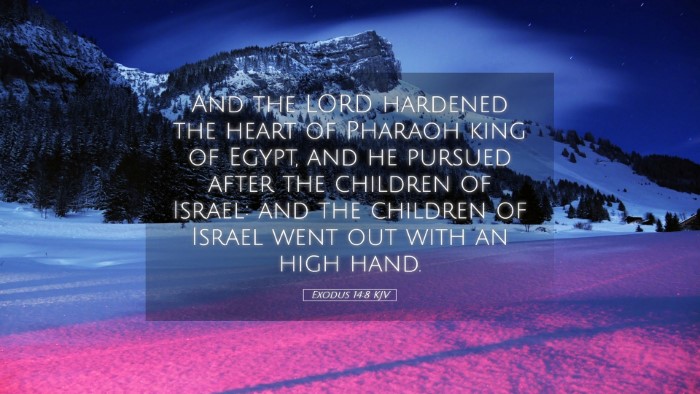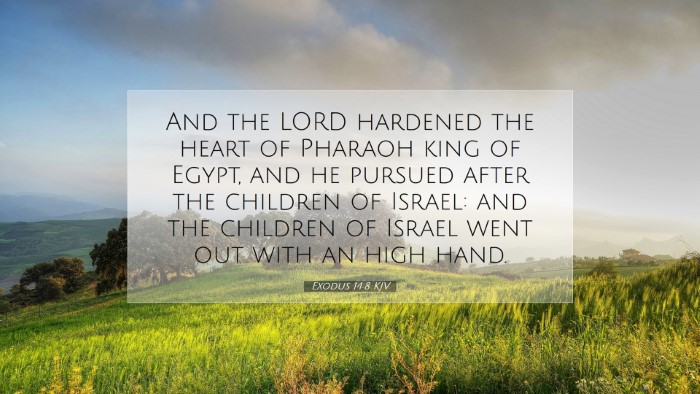Commentary on Exodus 14:8
Verse Text: "And the Lord hardened the heart of Pharaoh king of Egypt, and he pursued after the children of Israel: and the children of Israel went out with an high hand."
Introduction
Exodus 14:8 serves as a pivotal verse within the narrative of the Israelites' exodus from Egypt, highlighting the profound interplay of divine sovereignty and human agency. This commentary draws on the insights of esteemed biblical scholars and theologians to provide an in-depth analysis suitable for pastors, students, theologians, and Bible scholars.
Contextual Background
The escape of the Israelites from slavery in Egypt is a central theme of Exodus. Within the broader context of the book, the hardening of Pharaoh’s heart reveals significant theological implications regarding God’s providence and the unfolding of His redemptive plan.
Analysis of Key Themes
- The Hardening of Pharaoh’s Heart:
Albert Barnes notes that the hardening of Pharaoh's heart is an act of divine sovereignty. God, in His omnipotence, permits and even controls the hardness of hearts to fulfill His purposes. This asserts God's authority over earthly rulers and establishes that His plan cannot be thwarted by human obstinacy.
- Divine Sovereignty vs. Human Free Will:
Matthew Henry emphasizes the balance between God's sovereignty and human responsibility. While God hardened Pharaoh's heart, it does not exempt Pharaoh from accountability. The text suggests a complex relationship where God uses Pharaoh's rebellious nature to showcase His power and glory.
- The Pursuit of the Israelites:
Adam Clarke illustrates that Pharaoh's pursuit is illustrative of a larger struggle between good and evil. The Israelites’ departure with a "high hand" symbolizes God's might and the anticipated deliverance that His people would experience. The pursuit represents the relentless nature of evil, refusing to let go even in the face of divine intervention.
- The Significance of the "High Hand":
The phrase "went out with a high hand" indicates not only victory but also the recognition of God's power. It serves as a testament to the authority and sovereignty of God in what is perceived as a moment of absolute defeat for Pharaoh, showcasing the paradox of victory in apparent weakness.
Theological Reflections
In reflecting on Exodus 14:8, several theological truths emerge that merit deeper consideration:
- God’s Sovereign Plan:
This verse serves as a reminder that God's plans will ultimately prevail. His hardening of Pharaoh’s heart fulfills His purpose in demonstrating His glory through judgment upon Egypt and deliverance of Israel.
- Grace in Judgment:
Matthew Henry posits that even in divine judgment, there is an element of grace. The hardening is a part of God's patient dealings with humanity, offering opportunities for repentance even until the end.
- The Nature of True Freedom:
The liberation of the Israelites reflects a deeper spiritual truth. True freedom is not merely escape from physical bondage but also entails liberation from spiritual enslavement. The high hand symbolizes not only their triumph over Egypt but their emerging identity as God’s chosen people.
- The Reality of Spiritual Warfare:
The pursuit of Pharaoh can be viewed as a representation of spiritual warfare. As believers, the journey to freedom in Christ often attracts resistance from forces opposed to God's will, underscoring the importance of remaining steadfast in faith.
Application for Believers
As contemporary readers engage with Exodus 14:8, various applications can be codified for personal edification:
- Trust in God’s Sovereignty:
Believers are encouraged to trust that God orchestrates their circumstances, even when they may seem bleak or incomprehensible.
- Recognizing Resistance:
Like the Israelites, believers should expect opposition when pursuing God’s calling, knowing that such resistance does not negate God's promises.
- Celebrating God’s Power:
As evidenced by the Israelites' released exodus, moments of deliverance should be celebrated as testimonies of God's faithfulness and power in our lives.
- Living with Purpose:
Understanding that our ultimate freedom is rooted in Christ motivates believers to live purposefully, sharing the hope of deliverance with others.
Conclusion
Exodus 14:8 encapsulates themes of divine sovereignty, human responsibility, and the assurance of God’s powerful deliverance. Through this verse, we are reminded of the grand narrative of redemption that transcends time and space, inviting all to reflect on the continued relevance of these ancient truths in the life of faith today.


